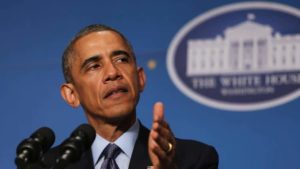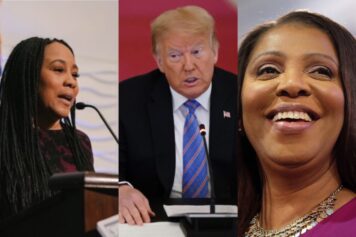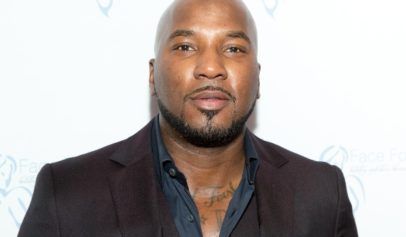
Former President Barack Obama (Aude Guerrucci / Getty Images)
In the wake of President Donald Trump’s executive order barring all Syrian refugees from entering the U.S. and restricting travel from seven Muslim-majority nations in the Middle East, former President Barack Obama rejected the new immigration orders, while showing support for protesters who mobilized against Trump’s travel ban.
Obama is “heartened by the level of engagement taking place in communities around the country,” read the statement issued through the former president’s spokesman, Kevin Lewis. “In his final official speech as president, he spoke about the important role of citizens and how all Americans have a responsibility to be guardians of our democracy — not just during an election, but every day.”
“Citizens exercising their Constitutional right to assemble, organize and have their voices heard by their elected officials is exactly what we expect to see when American values are at stake,” he continued.
Frm Pres @BarackObama is heartened by the level of engagement taking place in communities around the country. pic.twitter.com/X5Fk3xRDEX
— Kevin Lewis (@KLewis44) January 30, 2017
This is the first public statement the former POTUS has made since leaving office in mid-January, making good on his promise to continue speaking out on a number of issues.
Obama went on to refute Trump’s claim that his executive orders suspending travel from seven Muslim-majority countries for the next 120 days “were similar to what President Obama did in 2011 when he banned visas for refugees from Iraq for six months.” As reported by NBC News, Obama’s 2011 order didn’t restrict visas for refugees, but rather stiffened the vetting process for Iraqi citizens and refugees from the six other countries — Iran, Libya, Somalia, Sudan, Syria and Yemen. Trump’s order, on the other hand, bans nearly all citizens and refugees from these seven nations from entering the U.S.
“When I hear folks say that, well, maybe we should just admit the Christians but not the Muslims, when I hear political leaders suggesting that there would be a religious test for which a person who’s fleeing from a war-torn country is admitted, when some of those folks themselves come from families who benefited from protection when they were fleeing political persecution — that’s shameful,” Obama said during a press conference in November 2015.
“That’s not American,” he added. “That’s not who we are.”
Prior to the end of his presidency, Obama, who is still on vacation with his family in Palm Springs, Calif., said he would try to remain hush-hush on the decisions of the Trump administration as they got settled into the White House. However, the national outrage and protests spurred by Trump’s executive order were seemingly enough for the former president to voice his concerns over the ban as well.
Obama’s latest statement against Trump came on the same day acting Attorney General Sally Q. Yates refused to defend the president’s executive order, telling Justice Department lawyers she was not “convinced that the executive order was lawful.” White House officials lashed out at Yates for her defiance and Trump ultimately fired her, quickly replacing her with seasoned attorney Dana J. Boente.
Yates has “betrayed the Department of Justice by refusing to enforce a legal order designed to protect the citizens of the United States,” read the statement from the White House. “[She’s] an Obama administration appointee who is weak on borders and very weak on illegal immigration.”
Boente will serve as acting attorney general until Sen. Jeff Sessions, Trump’s pick for the position — or another candidate, if Sessions is rejected — is confirmed by the Senate.


